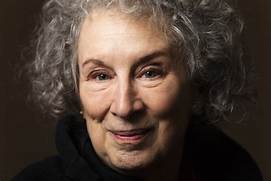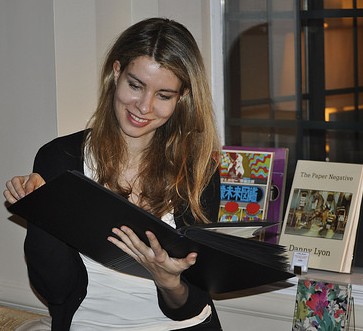5 Writing Lessons Learned from Margaret Atwood
Today’s guest post is by Dave Chesson.
Thanks to the golden age of television, Margaret Atwood is finally gaining the recognition she deserves.
Don’t get me wrong. Atwood has always been known for publishing politically provocative, emotionally engaging fiction.
However, due to the runaway success of the Handmaid’s Tale, not to mention the topical relevance of the themes to which it speaks, Margaret Atwood is on the radar like never before. This has only increased with the announcement of her upcoming new novel.
So what does this mean for you as a writer?
First, take inspiration. It’s possible to publish the story you truly want to tell, with a controversial political message, and still experience the maximum extent of success possible.
Second, take action. As well as a generally epic example, Margaret Atwood provides plenty of actionable advice for you as a writer.
This article contains a mixture of the best practical and inspirational advice provided by Margaret Atwood.
Talent Isn’t Foreseen
Do you see yourself as a talented writer? If not, why not? Could it be the story you’ve had drummed into you from an early age?
“My eleventh-grade teacher was interviewed some years ago in a “This-Is-Your-Life” type project. She was quite honest and said that she saw no particular talent in me at all.” —Margaret Atwood
Recently, I opened up about my personal journey with dyslexia. It made me always have the limiting belief that writing wasn’t for me. I figured that whatever talents I’d been blessed with, writing wasn’t one of them.
Guess what? I’m still not the best writer. Nor will I ever be. But that’s OK.
What I’ve learned is that persistence, a commitment to mastery, and good old-fashioned hard work are far more likely to determine success than inherent talent ever could.
The Power of “If” Questions
Do you struggle with knowing what to write?
“I think a lot of novels begin as questions. For example, Handmaid’s Tale began as a question. Really, a couple of questions: “If you were going to take over the United States, how would you do it?” “If women’s place isn’t the home, how are you going to get them back into the home now that they are not there?” —Margaret Atwood
Try to take Margaret Atwood’s advice. You have a truly unlimited source of story ideas, provided you are able to conceive interesting “if’” questions.
Stephen King actually has a similar philosophy to writing fiction, expanded upon in his classic guide On Writing.
Ultimately, fiction should be captivating. There is no better way to produce this outcome than through the use of “if” questions.
These questions can range from the mundane to the mindblowing.
For example, on the one hand, you could ask a question as straightforward as “What would happen if X person won the presidency instead of Y person?”
On the other hand, you could ask a question as outlandish as “What would happen if everyone was allowed to see two years into their future, but only once during their lifetime?”
Chances are, if an “if’” question intrigues you, it will probably intrigue your readers too.
Your Life Experience Is Legitimate
A lot of people hold themselves back from writing the story they truly want to tell. This is often due to a false, limiting belief that their own range of experiences and interactions aren’t important enough to write about. Thanks to the new reality of self-publishing, there is no need to wait for a certain point.
Other people wait until a later time in their life, in terms of either experience or maturity.
While this perspective is understandable, it is also mistaken. In actual fact:
“The significant points in this narrative change as a person ages—what may have been tragedy at 20 is seen as comedy or nostalgia at 40.” —Margaret Atwood
The takeaway message from the above quotation, at least for me, is that everyone’s life experience is valid, interesting, and worthy of sharing, even if you later come to view events in a different life.
There’s no need to wait for a milestone to tell your tale. Get started, right now. Even if you eventually view things very differently!
The Limitation of Pedestals
We writers are insecure by nature. We often feel that no one will appreciate our work until we reach a certain level of fame and recognition. Similarly, we often hold ourselves back due to our own personal insecurities about our stature.
In fact, our lack of fame can act as a strength.
Consider the following take:
“If you’re put on a pedestal you’re supposed to behave like a pedestal type of person. Pedestals actually have a limited circumference. Not much room to move around.” —Margaret Atwood
Have you ever heard of a famous actor becoming typecast? Or a music artist failing to replicate their prior success due to a change of style?
If you’re an author who has not yet reached the status of “on a pedestal,” be grateful.
The lesser known you are, the more freedom you have to make and learn from mistakes. Your style isn’t yet set in stone, and neither are your audience expectations.
Enjoy this freedom and experiment to the fullest, before that place on the pedestal is finally yours.
Focus on Impact
As writers, we often let our ego interject too much. I’m as guilty of this as anyone. I often worry too much about what I have to say rather than how other people will perceive it.
In actual fact, I’ve found the following quotation from Margaret Atwood to be very close to the truth:
“It actually doesn’t matter what I feel. What matters is how the art makes you feel” —Margaret Atwood
Ultimately, it’s not about conveying your own thoughts and feelings, although this will inevitably happen.
Instead, it’s about provoking a response in others.
 You should avoid being bland and forgettable at all costs. Instead, aim to make the maximum impact on your readers.
You should avoid being bland and forgettable at all costs. Instead, aim to make the maximum impact on your readers.
After all, your readers are the ones who will be writing your reviews on Amazon, spreading the word about your book, and possibly signing up to your author mailing list to stay informed about future projects.
Neglect the feelings of others at your own peril. Conversely, tap into the feelings of others, speak to them, and even influence them. This is a recipe for true, long-term, sustainable success.
Lessons from Margaret Atwood – My Final Thoughts
I hope you’ve found at least one principle or idea from Margaret Atwood to put into practice in your own writing life. In summary:
- Don’t place limits on yourself. It’s still more than possible to succeed, even if others don’t expect it.
- Use imaginative “if’” questions to generate creative story concepts.
- Your life experience, whatever it may be, is valid and well worth sharing.
- If you’re an unknown author, your lack of profile gives you the freedom to explore and experiment.
- Place more emphasis on what you make the reader feel as opposed to your own personal take.
Which is your favorite piece of advice from Margaret Atwood? How do you intend to apply it in your own writing life? Please let us know in the comments!
Note from C. S.: If you love Margaret Atwood as much as I do, be sure to check out her online class at MasterClass. I’m going to take it, and I hope you do too. While there, take a look at all the amazing courses they offer!
 Dave Chesson runs Kindlepreneur.com, one of the largest book-marketing websites. When he’s not analyzing new book-marketing methods, he loves taking a practical approach to author tools, like his comparison of the best writing tools for authors.
Dave Chesson runs Kindlepreneur.com, one of the largest book-marketing websites. When he’s not analyzing new book-marketing methods, he loves taking a practical approach to author tools, like his comparison of the best writing tools for authors.












An excellent article! I love Margaret Atwood and now I know why!
Yeah, she’s pretty special…and listening to her teach about writing was pretty magical.
I will be putting into practice Margaret Atwood’s advice for the imaginative use of the “if” questions. It’s another way to stimulate the thought process when coming up with story ideas I’ll add to my cache. Thank you for sharing!
Really fine article, Dave. Have loved your work with Kindlepreneur, and now enjoy following your guest stints. As always, I walked away with a “gold nugget” for which I am grateful!